ABOUT SOFTWARE PIRACY
Software piracy is “the illegal copying, distribution, or use of software.” Piracy includes casual copying of particular software by an individual or business. With the advancement of technological tools software piracy has increased worldwide. You may be thinking, what does this have to do with me? Unfortunately, software piracy affects all of us in more ways than one. For instance, software piracy hurts the economy because revenue is lost. Second, the software industry is affected because limited numbers of jobs are available. Lastly, consumers end up paying higher prices for software programs. Not being educated about software piracy will not exempt you of civil and/or criminal penalties if found guilty. Fines could include up to $250,000 and/or 5 years in jail.
Did You Know?
Did you know that software piracy is considered stealing? It is the same as shoplifting or burglary. The software user also runs a higher risk of viruses and fatal system crashes because of corrupted diskettes or defective software. Consumers also lose because they don’t enjoy the full benefits of technical support, warranty protection, or product upgrade information.
Software Licensure Agreement
When downloading software via Internet, users agree to a licensure agreement before they are able to test out the software. If this agreement is broken or violated, then the user is guilty of software piracy. The software licensure agreement is a contract between the software user and the software developer. Usually, this agreement has certain terms and conditions the software user must follow. When the user doesn’t follow the rules and regulations, they are guilty of software piracy. Some of these terms and conditions prohibit:
1. Using multiple copies of a single software package on several computers.
2. Passing out copies of software to others without the proper documentation (Not having a multiple site license for more than one computer).
3. Downloading or uploading pieces of software via bulletin boards or intranet sites for others to copy.
4. Downloading and installing shareware without paying for it.
Unless otherwise stated, most software licensure agreements allow you to place one copy on a single computer and make a second copy for backup purposes. Software piracy comes in many different forms. The three most common type are End-User Piracy, Internet Piracy and Reseller Piracy.
End-User Piracy
End-User Piracy, sometimes referred to as soft-lifting copying, is prevalent in the workplace. To illustrate, one copy of software has been purchased for a particular machine and that same piece of software is installed on several different computers without the proper documentation (multiple site licensure). In some cases, employees will also install that same piece of software on their home computers. In addition to installing one software application on several different computer systems, some organizations/businesses are also guilty of not reporting the proper number of stations that will actually be using a particular software application. End-user piracy also deals with individuals swapping copies of software programs with friends or family members.
Internet Piracy
Internet piracy is rapidly becoming the fastest and easiest way to receive pirated software. Many companies allow consumers to download software from the Internet. This eliminates the need to make several trips to the store or sending out copies of software on storage devices. However, these simple and time saving techniques have also increased Internet piracy. Internet piracy can occur in many different forms such as downloading or uploading software from/to a bulletin board, attaching a copy of software via email and/or transmitting software programs via file transfer protocol (FTP).
Reseller Piracy
Reseller piracy, also known as counterfeiting and hard disk loading, happens when a legal copy of software is duplicated and distributed on a massive amount of personal computers and/or to consumers as a legal software application. This type of piracy can be very difficult to identify due to the very sophisticated manner in which the software is duplicated and presented to the individual and/or organization.
WHAT CAN YOU DO?
If you are aware of an individual and/or organization who is using pirated software you can:
♦Confidentially report suspected piracy use by contacting Business Software Alliance (BSA) via phone (888) NOPIRACY, online at www.bsa.org or email software@bsa.org.
♦Implement some type of software management tool. The BSA offers a free publication entitled “The Guide to Software Management,” which can assist you and/or the organization in establishing guidelines for proper software installation in your environment. This guide can be ordered or downloaded via Internet at www.bsa.org.
♦Download a free copy of the BSA software management tool titled SoftScan and MacScan available at www.bsa.org. The software program can help businesses/organizations to detect licensed and unlicensed software applications on their machines.
♦Contact The Software & Information Industry Association (SIIA) to report violations via phone (800)388-7478 or via email piracy@spa.org or online via their online piracy intake report located at www.siia.net.
♦Download a free software management tool provided by SIIA. SIIA provides a self-audit kit that deals with appropriate procedures to assist an organization/business with software issues.
♦Be careful when purchasing software via Internet auction sites. According to a recent study conducted by the BSA, most of the business software available on many Internet auction sites is counterfeit.
♦When in doubt, contact the software publisher/manufacturer. They will be able to tell you the proper documentation and price range for that particular software.
